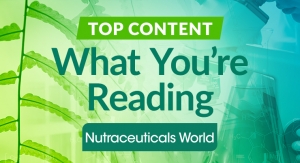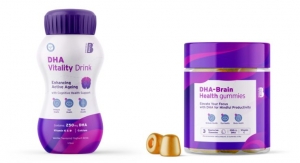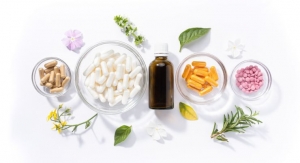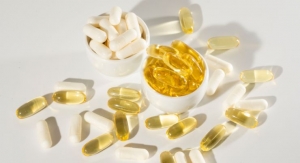By Alan Richman, Contributing Writer10.01.18
Virtually all scientists believe that life on Earth originated in the sea billions of years ago. If one accepts this premise, it comes as no surprise that the sea and other waters of the world continue to produce natural ingredients that enhance health and contribute to an active, vibrant lifestyle.
The first, of course, is fresh water itself, which humans need for drinking and to provide—via evaporation, rain, and irrigation—the moisture needed to nourish vegetation, forestation, and cultivated crops. Within the foreseeable future, it’s possible people will use the salted sea for the majority of drinking water, too, thanks to desalinization efforts around the globe.
Other health-giving substances from the sea include many thousands of varieties of plant and animal matter that grace dinner tables, providing essential macro- and micronutrients. And then there are specialized oils, extracts and more that have become critical components of the marine ingredients segment of the broader nutraceutical industry.
Oh My Omega
There is perhaps no better-known marine-derived supplement constituent than omega fatty acids. Global sales of EPA (eicosapentaenoic acid) and DHA (docosahexaenoic acid), the two leading omega-3s, reached 88,518 metric tons worth $1.18 billion in 2016, according to the Global Organization for EPA and DHA Omega-3s (GOED). These levels reflected tonnage growth of 2.5% and dollar growth of 2.4% over the 2015 totals, said GOED’s Chris Gearhart, director of member communication and engagement for the Salt Lake City, UT-based association, which represents 200 companies worldwide.
“Dietary supplements (57.0%), infant formulas (18.8%), and pharmaceuticals (16.4%) were the top three applications of omega-3 ingredients in finished products by value,” said Mr. Gearhart. Standard, non-concentrated refined fish oils constituted the largest omega-3 category by volume, followed by concentrated fish oils, which were the most valuable in terms of price.
Based on trends apparent in GOED’s 2015-16 Market Report, the organization is predicting continued growth for 2017-19. Efforts expected to spur this growth include a long-term omega-3 trial that is nearing publication. Called the VITAL study, the large-scale trial is looking to see whether an intervention of 2,000 IU of vitamin D3 along with one gram of Omacor fish oil daily will reduce the risk of developing cancer, heart disease, and stroke in people who do not have a prior history of these illnesses. The study, being conducted by Brigham and Women’s Hospital in Boston, began in 2010 and includes more than 25,000 subjects.
Admitting to a concern about the dosage being used in the study, GOED Executive Director Ellen Schutt said, “They are looking for as much as a 20% reduction in these risks. We are expecting they will see about an 8% to 10% reduction, which is great, but depending on how they report it, might be on the border of statistical significance.”
A second study, nicknamed ASCEND (A Study of Cardiovascular Events in Diabetes), was published Aug. 26 in the New England Journal of Medicine. While researchers reported there was no evidence of a benefit of EPA/DHA for serious vascular events or death from any cause, in exploratory analyses, there were fewer vascular deaths in the EPA/DHA group than in the placebo group.
For this study, researchers randomly assigned 15,480 patients with diabetes but without evidence of atherosclerotic cardiovascular disease to receive 1-gram capsules containing either omega-3 fatty acids or matching placebo daily. The primary outcome was a first serious vascular event (i.e., non-fatal myocardial infarction or stroke, transient ischemic attack, or vascular death, excluding confirmed intracranial hemorrhage). The secondary outcome was a first serious vascular event or any arterial revascularization.
During a mean follow-up of 7.4 years (adherence rate, 76%), a serious vascular event occurred in 689 patients (8.9%) in the fatty acid group and in 712 (9.2%) in the placebo group (rate ratio, 0.97; 95% confidence interval [CI], 0.87 to 1.08; P=0.55). The composite outcome of a serious vascular event or revascularization occurred in 882 patients (11.4%) and 887 patients (11.5%), respectively (rate ratio, 1.00; 95% CI, 0.91 to 1.09). Death from any cause occurred in 752 patients (9.7%) in the fatty acid group and in 788 (10.2%) in the placebo group (rate ratio, 0.95; 95% CI, 0.86 to 1.05). There were no significant between-group differences in the rates of non-fatal serious adverse events, researchers said.
GOED argued that the study was not adequately powered, noting the most consistently demonstrated and reported benefit associated with omega-3s is the reduction in risk of cardiac death, which includes death from coronary heart disease (CHD). In the ASCEND study, there were fewer vascular deaths in the EPA/DHA group than in the placebo group, as seen in exploratory analyses (additional analyses that are not part of the original statistical plan). Additionally, the authors reported a 21% risk reduction for coronary death that missed statistical significance (95% Confidence Interval = 0.61-1.02). Given that the study was not powered to detect such a difference, this finding should not be overlooked, GOED noted.
Notably, this is the first time that results from any significant primary prevention research on omega-3s have been published. Although it is important to not over-interpret findings from post-hoc analyses, the results showed promise for prevention of cardiac death, GOED said. The results reported are qualitatively consistent with existing research, most of which has focused on secondary prevention: a small trend toward the prevention of cardiovascular events, and a larger effect in the prevention of cardiac death. While more research is needed, this could indicate the mechanisms that underlie cardiovascular prevention as measured in secondary prevention may also be present in primary prevention, and help protect diabetics.
Additionally, GOED noted the baseline Omega-3 Index of 152 patients in a randomly selected subgroup whose Omega-3 Indexes were tested was relatively high (placebo treatment: 6.6% and omega-3 treatment: 7.1%). These patients are very different from the general adult U.K. population, for whom the average Omega-3 index is less than 4%. While omega-3 treatment increased the Omega-3 Index to 9.1%, the high baseline suggests study participants were already close to the range (8-12%) that is optimal for cardiovascular prevention. So it is to be expected that an additional dose of omega-3 would only have a modest effect.
Regarding other omega-3 market trends, Mr. Gearhart said, “We see a variety of new raw material sources being developed. There are more algae options than ever before; there is a GM canola oil that has been submitted for approval in the United States and Canada, and there are a lot of new marine sources, such as calamari oil, hoki oil, and caviar oil. All offer a different marketing story for the consumer.”
Arista Industries, Wilton, CT, is already working with a variety of sources, according to Mary Ann Siciliano, national sales manager. “We offer various potencies of cod liver oil, salmon oil, omega-3 fatty acid fish oil, high-DHA tuna oil, and krill oil. The EPA/DHA in the marine oils we offer may help with overall general health, cardiovascular health, arthritis and inflammation, eye health, mental disorders, and memory.”
Eating salmon doesn’t provide enough EPA and DHA to achieve nutritional goals, Ms. Siciliano said. Arista’s salmon oil has higher omega-3s than standard fish oil, much of which comes from farmed salmon, she added. Arista’s ingredients are “produced from salmon raised in Norwegian fjords.”
The species of salmon used to produce Arista’s salmon oil are: (primarily) Salmo salar; (secondarily) Salmo trutta; and (periodically) Salmo oncorhynchus. The typical fish parts used in the manufacturing are the back, head, tail, stomach, and pieces of flesh or fish meat not used for edible fillets. “Subsequent selection and mixing of oils from these salmon varieties allow us to achieve the required omega-3 levels,” said Ms. Siciliano.
Two separate lines distinguish omega-3 offerings from Alesund, Norway-based Epax—Ultra Concentrates with more than 700 mg/g EPA and DHA, and Epax Core Concentrates featuring oils with 699 mg/g or less. More than 100 independent clinical trials over the past three decades have shown that the ingredients—which are marketed in North America by Stauber, Fullerton, CA—may help maintain good cardiovascular health, eye health, joint health, healthy inflammation response, pre- and postnatal health, cognitive health, and may also help manage metabolic syndrome, said Sarah Christianslund, product marketing manager.
Emphasizing that there is never a “dull moment” in the world of omega-3s, Ms. Christianslund cited massive consumer popularity and impressive growth of scientific data on the plus side.
Meanwhile, in column two, some studies produce lukewarm rather than smashing results; when that occurs, press coverage may be neutral at best, negative at worst. There are also international trade issues that arise about where fish are caught, and occasional environmental questions about how they are harvested. Most of all, she said, it is vital to understand that omega-3 fatty acids are a “tool to maintain good health, not a pharmaceutical fix-it-all.”
Krilling Me Softly
Krill are tiny, shrimp-like crustaceans, but they play an enormous role in the planet’s marine ecosystems. Surviving on phytoplankton, they congregate near the ocean’s surface and in turn serve as the principal diet for hundreds of creatures, including fish, birds, and whales. And they are quickly becoming a popular omega-3 option, said Andreas Berg Storsve, director of research and development for Aker BioMarine, Lysaker, Norway. The company recently introduced Superba Boost krill oil concentrate, saying that, compared to typical krill oil, it increases phospholipids up to 56%; total EPA and DHA 20-30%; and phosphatidylcholine levels up to 48%.
According to Mr. Storsve, fatty acids in krill are largely bound to phospholipids, which are integral to the body’s cells and cell membranes, as opposed to triglycerides, which are found in some fish and algal oils. “This difference is crucial,” he said, “because phospholipids are carried directly into the blood, thereby raising one’s Omega-3 Index very efficiently.”
Turning to sustainability issues, he noted that 85% of suppliers fishing in the Antarctic have joined the Association of Responsible Krill harvesting companies. He added that before deploying its first net in the Southern Ocean, Aker began working with WWF-Norway, an affiliate of the World Wide Fund for Nature, to make certain that its operations would have low impact on the ecosystem.
Functioning in both the nutraceutical and pharmaceutical industries, Mt. Bethel, PA-based Marine Ingredients, part of the KD Pharma Group, offers a wide range of omega-3 technologies, products and formats, including bulk oil, finished capsules, and liquids.
DPA (docosapentaenoic acid), an intermediary between EPA and DHA, is an “exciting product given its role in early links between omega-3s and cardiovascular disease,” said David Barnes, chief scientific officer and head of global research and development. But it also is “difficult to obtain in high concentration,” added Olav Sandnes, the company chairman, since the main source is seal oil “and that source has major environmental and animal-rights issues. It cannot legally be sold in a number of major markets, such as the United States.” Nonetheless, Mr. Sandnes explained, “KD/Marine is uniquely positioned to provide various concentrations of DPA from fish sources due to our critical mass and the multiple technologies available at our facilities.”
“While the importance and value of EPA/DHA is well documented, we are now learning that added benefits can result by including DPA,” said Mr. Barnes. The company’s NutraSolve3, which blends all three, plus vitamins A and D, and pro-resolving mediators can help users achieve “optimal whole-body health.”
Coshocton, OH-based Organic Technologies is the producer of Marine Stewardship Council (MSC)-certified AlaskOmega fish oil products, including omega-3 and omega-7 concentrates and natural fish oils. AlaskOmega omega-3 concentrates are available up to 85% total omega-3 in both EE (ethyl ester) and TG (triglyceride) form, and omega-7 concentrates are available in 50% and 70% concentrations.
“Omega-3 has been very well studied, and efficacy toward certain health applications well documented,” said Steve Dillingham, global director. “Omega-7 is more of a newcomer in the research department, and scientists worldwide are actively involved in studying the unique health properties of palmitoleic acid (omega-7), a monounsaturated fatty acid (C16:1).
Collagen Connections
Sales of collagen supplements exceed $46 million, according to SPINS.
Certified Nutraceuticals, Temecula, CA, reported that its product Pure Marine Collagen is “particularly rich” in hydroxyproline, a major component needed to produce collagen; alanine, which supplies energy to muscle tissues, the brain, and central nervous system and strengthens the immune system through its effect on antibody production; arginine, which helps stimulate the immune system and encourages healing; and glycine, which triggers release of oxygen required by the cell-making process.
On its website, the company said, “Pure Marine Collagen Peptide supplement is made from fish skin collagen through an enzymatic hydrolysis process and is pre-digested into components with a low molecular weight amino acids for optimal absorption and utilization by the body.” The website cited studies in which collagen peptides have provided benefits for sports performance, weight management, skin health, joint, and bone health.
There are two forms of collagen—powder and granules—offered by Nippi FreshWater Collagen, Burnaby, British Columbia, Canada. Sheri Esswein, vice president of business development for Stauber, which distributes the ingredient in North America, said this brand of collagen is “characterized by a low molecular weight resulting in improved digestibility and bioavailability.”
Minerals & More
Mineral-rich, calcified (dead) red algae from the bottom of the fjords of Iceland are the starting point for Aquamin, a product processed by Marigot Ltd., of Cork, Ireland and distributed by Stauber in North America. Aquamin contains calcium plus 72 other minerals. According to David O’Leary, Marigot’s commercial manager, all the ingredients based on his firm’s red algae material are plant-based, bioactive, and sustainably harvested, with “extensive studies supporting its advantages in bone, joint, and digestive health.”
Citing both emerging science and existing research, Patrick Stano, Stauber’s brand manager, said he expects marine minerals to move more and more toward the forefront of industry awareness in coming years.
Icy waters of the North Atlantic are the source for chitosan products from Primex, located in Siglufjordur, Iceland, said Hélène L. Lauzon, the company’s research and development director. “Extracted from the shell of cold-water shrimp (Pandalus borealis), the substance has been demonstrated to possess several biological properties, among which antioxidative, fat-binding, and antimicrobial are important ones for the food industry,” she said. For example, the firm’s LipoSan Ultra has been shown to be effective in facilitating weight loss and reducing body fat in overweight and mildly obese individuals.
NAXA (Natural Algae Astaxanthin Association), headquartered in Spring, TX, was formed to help growers and suppliers better define the astaxanthin market and combat market threats like synthetic astaxanthin and other knock-off ingredients claiming to be natural astaxanthin. NAXA membership is limited to producers of natural astaxanthin derived from Haematococcus pluvialis found in freshwater ponds, said Scott Steinford, the group’s president. A key association service is a testing and verification system, open to member- and non-member suppliers, that will ascertain whether specific products are truly natural.
Information from NAXA described the substance as a naturally occurring dark red carotenoid found in nature primarily in aquatic animals such as salmon, trout, krill, shrimp, crayfish, and crustaceans. Humans, unlike crustaceans, cannot synthesize astaxanthin and need to acquire it through their diet. Benefits of astaxanthin usage are said to be its “unique capacity to quench free radicals and reactive species of oxygen and to inhibit lipid peroxidation. Studies have shown natural astaxanthin to be over 500 times stronger than vitamin E and much more potent than other carotenoids such as lutein, lycopene, and beta-carotene. Moreover, astaxanthin, a xanthophyll carotenoid, is a nutrient with a unique molecule structure; it does not convert to vitamin A (retinol) and has no ‘pro-oxidant’ activity.”
About the Author: Alan Richman, former editor/associate publisher of Whole Foods Magazine, is now a full-time, New Jersey-based freelance journalist focusing on the health and nutrition industry. A frequent contributor to Nutraceuticals World, he can be reached at arkr@comcast.net.
The first, of course, is fresh water itself, which humans need for drinking and to provide—via evaporation, rain, and irrigation—the moisture needed to nourish vegetation, forestation, and cultivated crops. Within the foreseeable future, it’s possible people will use the salted sea for the majority of drinking water, too, thanks to desalinization efforts around the globe.
Other health-giving substances from the sea include many thousands of varieties of plant and animal matter that grace dinner tables, providing essential macro- and micronutrients. And then there are specialized oils, extracts and more that have become critical components of the marine ingredients segment of the broader nutraceutical industry.
Oh My Omega
There is perhaps no better-known marine-derived supplement constituent than omega fatty acids. Global sales of EPA (eicosapentaenoic acid) and DHA (docosahexaenoic acid), the two leading omega-3s, reached 88,518 metric tons worth $1.18 billion in 2016, according to the Global Organization for EPA and DHA Omega-3s (GOED). These levels reflected tonnage growth of 2.5% and dollar growth of 2.4% over the 2015 totals, said GOED’s Chris Gearhart, director of member communication and engagement for the Salt Lake City, UT-based association, which represents 200 companies worldwide.
“Dietary supplements (57.0%), infant formulas (18.8%), and pharmaceuticals (16.4%) were the top three applications of omega-3 ingredients in finished products by value,” said Mr. Gearhart. Standard, non-concentrated refined fish oils constituted the largest omega-3 category by volume, followed by concentrated fish oils, which were the most valuable in terms of price.
Based on trends apparent in GOED’s 2015-16 Market Report, the organization is predicting continued growth for 2017-19. Efforts expected to spur this growth include a long-term omega-3 trial that is nearing publication. Called the VITAL study, the large-scale trial is looking to see whether an intervention of 2,000 IU of vitamin D3 along with one gram of Omacor fish oil daily will reduce the risk of developing cancer, heart disease, and stroke in people who do not have a prior history of these illnesses. The study, being conducted by Brigham and Women’s Hospital in Boston, began in 2010 and includes more than 25,000 subjects.
Admitting to a concern about the dosage being used in the study, GOED Executive Director Ellen Schutt said, “They are looking for as much as a 20% reduction in these risks. We are expecting they will see about an 8% to 10% reduction, which is great, but depending on how they report it, might be on the border of statistical significance.”
A second study, nicknamed ASCEND (A Study of Cardiovascular Events in Diabetes), was published Aug. 26 in the New England Journal of Medicine. While researchers reported there was no evidence of a benefit of EPA/DHA for serious vascular events or death from any cause, in exploratory analyses, there were fewer vascular deaths in the EPA/DHA group than in the placebo group.
For this study, researchers randomly assigned 15,480 patients with diabetes but without evidence of atherosclerotic cardiovascular disease to receive 1-gram capsules containing either omega-3 fatty acids or matching placebo daily. The primary outcome was a first serious vascular event (i.e., non-fatal myocardial infarction or stroke, transient ischemic attack, or vascular death, excluding confirmed intracranial hemorrhage). The secondary outcome was a first serious vascular event or any arterial revascularization.
During a mean follow-up of 7.4 years (adherence rate, 76%), a serious vascular event occurred in 689 patients (8.9%) in the fatty acid group and in 712 (9.2%) in the placebo group (rate ratio, 0.97; 95% confidence interval [CI], 0.87 to 1.08; P=0.55). The composite outcome of a serious vascular event or revascularization occurred in 882 patients (11.4%) and 887 patients (11.5%), respectively (rate ratio, 1.00; 95% CI, 0.91 to 1.09). Death from any cause occurred in 752 patients (9.7%) in the fatty acid group and in 788 (10.2%) in the placebo group (rate ratio, 0.95; 95% CI, 0.86 to 1.05). There were no significant between-group differences in the rates of non-fatal serious adverse events, researchers said.
GOED argued that the study was not adequately powered, noting the most consistently demonstrated and reported benefit associated with omega-3s is the reduction in risk of cardiac death, which includes death from coronary heart disease (CHD). In the ASCEND study, there were fewer vascular deaths in the EPA/DHA group than in the placebo group, as seen in exploratory analyses (additional analyses that are not part of the original statistical plan). Additionally, the authors reported a 21% risk reduction for coronary death that missed statistical significance (95% Confidence Interval = 0.61-1.02). Given that the study was not powered to detect such a difference, this finding should not be overlooked, GOED noted.
Notably, this is the first time that results from any significant primary prevention research on omega-3s have been published. Although it is important to not over-interpret findings from post-hoc analyses, the results showed promise for prevention of cardiac death, GOED said. The results reported are qualitatively consistent with existing research, most of which has focused on secondary prevention: a small trend toward the prevention of cardiovascular events, and a larger effect in the prevention of cardiac death. While more research is needed, this could indicate the mechanisms that underlie cardiovascular prevention as measured in secondary prevention may also be present in primary prevention, and help protect diabetics.
Additionally, GOED noted the baseline Omega-3 Index of 152 patients in a randomly selected subgroup whose Omega-3 Indexes were tested was relatively high (placebo treatment: 6.6% and omega-3 treatment: 7.1%). These patients are very different from the general adult U.K. population, for whom the average Omega-3 index is less than 4%. While omega-3 treatment increased the Omega-3 Index to 9.1%, the high baseline suggests study participants were already close to the range (8-12%) that is optimal for cardiovascular prevention. So it is to be expected that an additional dose of omega-3 would only have a modest effect.
Regarding other omega-3 market trends, Mr. Gearhart said, “We see a variety of new raw material sources being developed. There are more algae options than ever before; there is a GM canola oil that has been submitted for approval in the United States and Canada, and there are a lot of new marine sources, such as calamari oil, hoki oil, and caviar oil. All offer a different marketing story for the consumer.”
Arista Industries, Wilton, CT, is already working with a variety of sources, according to Mary Ann Siciliano, national sales manager. “We offer various potencies of cod liver oil, salmon oil, omega-3 fatty acid fish oil, high-DHA tuna oil, and krill oil. The EPA/DHA in the marine oils we offer may help with overall general health, cardiovascular health, arthritis and inflammation, eye health, mental disorders, and memory.”
Eating salmon doesn’t provide enough EPA and DHA to achieve nutritional goals, Ms. Siciliano said. Arista’s salmon oil has higher omega-3s than standard fish oil, much of which comes from farmed salmon, she added. Arista’s ingredients are “produced from salmon raised in Norwegian fjords.”
The species of salmon used to produce Arista’s salmon oil are: (primarily) Salmo salar; (secondarily) Salmo trutta; and (periodically) Salmo oncorhynchus. The typical fish parts used in the manufacturing are the back, head, tail, stomach, and pieces of flesh or fish meat not used for edible fillets. “Subsequent selection and mixing of oils from these salmon varieties allow us to achieve the required omega-3 levels,” said Ms. Siciliano.
Two separate lines distinguish omega-3 offerings from Alesund, Norway-based Epax—Ultra Concentrates with more than 700 mg/g EPA and DHA, and Epax Core Concentrates featuring oils with 699 mg/g or less. More than 100 independent clinical trials over the past three decades have shown that the ingredients—which are marketed in North America by Stauber, Fullerton, CA—may help maintain good cardiovascular health, eye health, joint health, healthy inflammation response, pre- and postnatal health, cognitive health, and may also help manage metabolic syndrome, said Sarah Christianslund, product marketing manager.
Emphasizing that there is never a “dull moment” in the world of omega-3s, Ms. Christianslund cited massive consumer popularity and impressive growth of scientific data on the plus side.
Meanwhile, in column two, some studies produce lukewarm rather than smashing results; when that occurs, press coverage may be neutral at best, negative at worst. There are also international trade issues that arise about where fish are caught, and occasional environmental questions about how they are harvested. Most of all, she said, it is vital to understand that omega-3 fatty acids are a “tool to maintain good health, not a pharmaceutical fix-it-all.”
Krilling Me Softly
Krill are tiny, shrimp-like crustaceans, but they play an enormous role in the planet’s marine ecosystems. Surviving on phytoplankton, they congregate near the ocean’s surface and in turn serve as the principal diet for hundreds of creatures, including fish, birds, and whales. And they are quickly becoming a popular omega-3 option, said Andreas Berg Storsve, director of research and development for Aker BioMarine, Lysaker, Norway. The company recently introduced Superba Boost krill oil concentrate, saying that, compared to typical krill oil, it increases phospholipids up to 56%; total EPA and DHA 20-30%; and phosphatidylcholine levels up to 48%.
According to Mr. Storsve, fatty acids in krill are largely bound to phospholipids, which are integral to the body’s cells and cell membranes, as opposed to triglycerides, which are found in some fish and algal oils. “This difference is crucial,” he said, “because phospholipids are carried directly into the blood, thereby raising one’s Omega-3 Index very efficiently.”
Turning to sustainability issues, he noted that 85% of suppliers fishing in the Antarctic have joined the Association of Responsible Krill harvesting companies. He added that before deploying its first net in the Southern Ocean, Aker began working with WWF-Norway, an affiliate of the World Wide Fund for Nature, to make certain that its operations would have low impact on the ecosystem.
Functioning in both the nutraceutical and pharmaceutical industries, Mt. Bethel, PA-based Marine Ingredients, part of the KD Pharma Group, offers a wide range of omega-3 technologies, products and formats, including bulk oil, finished capsules, and liquids.
DPA (docosapentaenoic acid), an intermediary between EPA and DHA, is an “exciting product given its role in early links between omega-3s and cardiovascular disease,” said David Barnes, chief scientific officer and head of global research and development. But it also is “difficult to obtain in high concentration,” added Olav Sandnes, the company chairman, since the main source is seal oil “and that source has major environmental and animal-rights issues. It cannot legally be sold in a number of major markets, such as the United States.” Nonetheless, Mr. Sandnes explained, “KD/Marine is uniquely positioned to provide various concentrations of DPA from fish sources due to our critical mass and the multiple technologies available at our facilities.”
“While the importance and value of EPA/DHA is well documented, we are now learning that added benefits can result by including DPA,” said Mr. Barnes. The company’s NutraSolve3, which blends all three, plus vitamins A and D, and pro-resolving mediators can help users achieve “optimal whole-body health.”
Coshocton, OH-based Organic Technologies is the producer of Marine Stewardship Council (MSC)-certified AlaskOmega fish oil products, including omega-3 and omega-7 concentrates and natural fish oils. AlaskOmega omega-3 concentrates are available up to 85% total omega-3 in both EE (ethyl ester) and TG (triglyceride) form, and omega-7 concentrates are available in 50% and 70% concentrations.
“Omega-3 has been very well studied, and efficacy toward certain health applications well documented,” said Steve Dillingham, global director. “Omega-7 is more of a newcomer in the research department, and scientists worldwide are actively involved in studying the unique health properties of palmitoleic acid (omega-7), a monounsaturated fatty acid (C16:1).
Collagen Connections
Sales of collagen supplements exceed $46 million, according to SPINS.
Certified Nutraceuticals, Temecula, CA, reported that its product Pure Marine Collagen is “particularly rich” in hydroxyproline, a major component needed to produce collagen; alanine, which supplies energy to muscle tissues, the brain, and central nervous system and strengthens the immune system through its effect on antibody production; arginine, which helps stimulate the immune system and encourages healing; and glycine, which triggers release of oxygen required by the cell-making process.
On its website, the company said, “Pure Marine Collagen Peptide supplement is made from fish skin collagen through an enzymatic hydrolysis process and is pre-digested into components with a low molecular weight amino acids for optimal absorption and utilization by the body.” The website cited studies in which collagen peptides have provided benefits for sports performance, weight management, skin health, joint, and bone health.
There are two forms of collagen—powder and granules—offered by Nippi FreshWater Collagen, Burnaby, British Columbia, Canada. Sheri Esswein, vice president of business development for Stauber, which distributes the ingredient in North America, said this brand of collagen is “characterized by a low molecular weight resulting in improved digestibility and bioavailability.”
Minerals & More
Mineral-rich, calcified (dead) red algae from the bottom of the fjords of Iceland are the starting point for Aquamin, a product processed by Marigot Ltd., of Cork, Ireland and distributed by Stauber in North America. Aquamin contains calcium plus 72 other minerals. According to David O’Leary, Marigot’s commercial manager, all the ingredients based on his firm’s red algae material are plant-based, bioactive, and sustainably harvested, with “extensive studies supporting its advantages in bone, joint, and digestive health.”
Citing both emerging science and existing research, Patrick Stano, Stauber’s brand manager, said he expects marine minerals to move more and more toward the forefront of industry awareness in coming years.
Icy waters of the North Atlantic are the source for chitosan products from Primex, located in Siglufjordur, Iceland, said Hélène L. Lauzon, the company’s research and development director. “Extracted from the shell of cold-water shrimp (Pandalus borealis), the substance has been demonstrated to possess several biological properties, among which antioxidative, fat-binding, and antimicrobial are important ones for the food industry,” she said. For example, the firm’s LipoSan Ultra has been shown to be effective in facilitating weight loss and reducing body fat in overweight and mildly obese individuals.
NAXA (Natural Algae Astaxanthin Association), headquartered in Spring, TX, was formed to help growers and suppliers better define the astaxanthin market and combat market threats like synthetic astaxanthin and other knock-off ingredients claiming to be natural astaxanthin. NAXA membership is limited to producers of natural astaxanthin derived from Haematococcus pluvialis found in freshwater ponds, said Scott Steinford, the group’s president. A key association service is a testing and verification system, open to member- and non-member suppliers, that will ascertain whether specific products are truly natural.
Information from NAXA described the substance as a naturally occurring dark red carotenoid found in nature primarily in aquatic animals such as salmon, trout, krill, shrimp, crayfish, and crustaceans. Humans, unlike crustaceans, cannot synthesize astaxanthin and need to acquire it through their diet. Benefits of astaxanthin usage are said to be its “unique capacity to quench free radicals and reactive species of oxygen and to inhibit lipid peroxidation. Studies have shown natural astaxanthin to be over 500 times stronger than vitamin E and much more potent than other carotenoids such as lutein, lycopene, and beta-carotene. Moreover, astaxanthin, a xanthophyll carotenoid, is a nutrient with a unique molecule structure; it does not convert to vitamin A (retinol) and has no ‘pro-oxidant’ activity.”
|
International ecolabel Friend of the Sea shares data about the rise in certified fish oil companies in 2018. The size of the global omega-3 dietary supplement industry has grown significantly in recent years. Evidence from the market shows more consumers worldwide are demanding fish oils and nutrients that are not only healthy and of high quality, but are also respectful of the marine environment. After decades of campaigns by environmental activists and industry advocates, the message has finally reached a rising number of eco-conscious individuals and households globally. In 2010, Friend of the Sea (FoS), an independent certification scheme set up two years earlier to assess the environmental sustainability associated with seafood from fisheries and aquaculture, felt the urgent need to introduce a specific standard for producers of fish oil, fishmeal, fish feed, and omega-3 supplements. Accredited third-party certification bodies certify that the oil originates only from fisheries that are compliant with Friend of the Sea sustainable fishing requirements, including good fishery management, selective fishing gears, and social responsibility, and that a full chain of custody is in place throughout the supply and the production chain. The fish contained in certified omega-3 products can be traced back to certified fisheries that have been independently assessed to meet Friend of the Sea’s widely recognized standard for sustainable wild fishing. These fisheries are well managed and their impacts on the environment minimized so that seafood supplies are safeguarded for future generations. Today, 439 companies adhere voluntarily to Friend of the Sea’s standards for fish oil, fishmeal, fish feed and omega-3 supplements, an increase of around 477% compared with 2015, when there were only 76. “As the leading globally recognized standard program for sustainable seafood, we are enthusiastic about scoring and sharing the positive change in attitude towards environmental sustainability and social accountability occurring also in the nutraceutical sector,” said Paolo Bray, founder and director of Friend of the Sea. “Consumers worldwide can now have wider access to sustainable products on the shelves and we are convinced of an even brighter future for the sector.” Certified oils originate mostly from approved Peruvian anchovy fisheries and fleet, Engraulis ringens, (29%), Antarctic krill, Euphausia superba, (22%), European sardine, Sardina pilchardus, (8%), European anchovy, Engraulis encrasicolus, (7%), Chub mackerel, Scomber japonicus, (7%), Atlantic cod, Gadus morhua, (3%). The remaining 24% derives from various species such as salmon, tuna, and squid, which are equally certified, processed, and usually refined and blended. Of over 439 Friend of the Sea labeled enterprises, 17% are processors, while 83% are distributors. Recently, manufacturing companies have been processing by-cuts or trimmings from selected seafood, thus optimizing the use of marine resources and avoiding the production of waste, embracing circular economy principles. Moreover, the industry has developed new extraction technologies considered more environmentally friendly, such as supercritical CO2 extraction, ultrasound, and microwaves. These methods optimize the pre-treatment and the extraction process itself. Among these, the most effective is that based on CO2, in particular in terms of better product quality and minimal use of energy. Friend of the Sea’s presence in the nutraceutical industry has grown considerably in the U.S., which now accounts for more than 50% of total FoS certified supplements (268 companies), followed by France (24), Canada (23), Norway (20), and the U.K. (14). Additionally, FoS confirms the positive trend of key geographic areas such as China (10) and Spain (8), while acknowledging the important growth of the Brazilian and Turkish sustainable diet supplement markets. Besides this, several FoS certified manufacturers are diversifying their production of fish oils by developing infant and pet-special/dog formula fish oil omega-3s. |
|
In July 2018 Terry Gross, host of NPR’s ‘Fresh Air,’ interviewed Paul Greenberg, author of The Omega Principle: Seafood and the Quest for a Long Life and a Healthier Planet. In Mr. Greenberg’s view, benefits attributed to omega-3 fatty acids fall into two categories: cardiovascular health and brain health. “They seem to impart a certain kind of flexibility to our cell membranes,” he said. But he added that while there are about 30,000 studies conducted on these substances, scientific certainty has not been determined as to their efficacy. Responding to Ms. Gross about the best way to ingest omega-3s, Mr. Greenberg said, “Generally speaking, it’s better to get omega-3s in food form than from supplements.” The human body was evolved to eat whole food, not isolated amounts of certain chemicals, vitamins or nutrients, he opined. Since fish and seafood are among the most important sources of omega-3 supplements, there are also questions about what’s happening to ocean ecosystems. Mr. Greenberg said the greatest effect seems to be on small, silvery, little fish like anchovies, herring, menhaden and, in particular, from Peruvian anchoveta. These tiny creatures feed on phytoplankton, which absorb energy from the sun. If this critical layer of the ocean biosphere were to be too depleted, larger fish would have too few little fish to dine on, and there would be no way to transfer solar energy to the large fish. “That’s my main concern,” said Mr. Greenberg. To help alleviate the problem, he suggested that supplement suppliers, and others in what he called the “reduction industry,” must consider the whole ecosystem when establishing fishing quotas, not just one or two species alone. He also recommended light consumption of fish or animal fat—maybe two servings a week—and large amounts of fruits, vegetables, and whole grains. Olive oil would be the principal fat. |
About the Author: Alan Richman, former editor/associate publisher of Whole Foods Magazine, is now a full-time, New Jersey-based freelance journalist focusing on the health and nutrition industry. A frequent contributor to Nutraceuticals World, he can be reached at arkr@comcast.net.




























